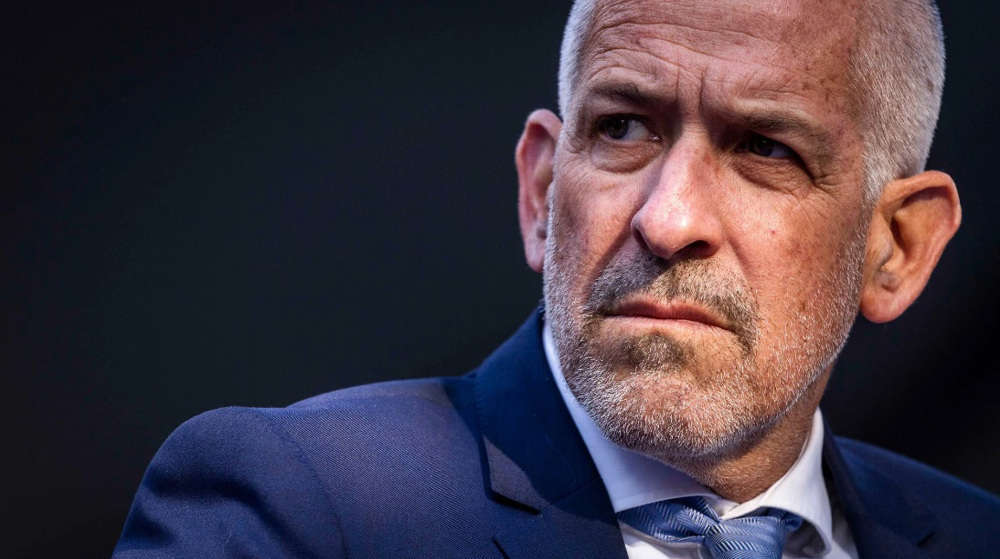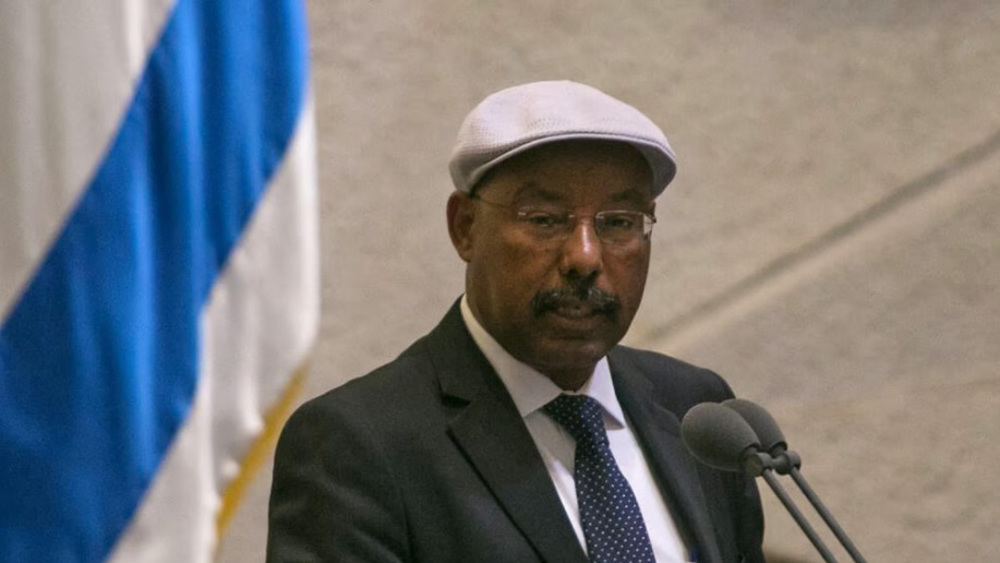Israel’s Netanyahu crossed all limits to stay in power: Gantz
Israeli opposition leader Benny Gantz has slammed prime minister Benjamin Netanyahu, saying he crossed all limits to remain in power.
In an interview with Israeli daily Yedioth Aharonoth, the chairman of the so-called “National Unity party” said Netanyahu has “lost all restraints that are possible to think of.”
Gantz noted that the premier is “doing anything to stay in government.”
“The delegitimization of the law enforcement system is intended to vindicate himself. He should take responsibility,” Gantz said.
However, he noted that Netanyahu’s actions will not help him achieve his political survival.
“The Israeli public from the left to the right won’t allow a ruler of this sort to stay in power at the next elections,” Gantz said.
The Israeli cabinet voted unanimously to fire Ronen Bar, head of the regime’s Shin Bet internal spy agency, citing the agency’s failure to anticipate the 2023 Operation Al-Aqsa Flood. But the supreme court swiftly suspended the decision until April 8.
In an open letter to the “High Court of Justice” on Friday, Bar said Netanyahu had repeatedly asked that he issue an opinion citing security concerns to prevent the premier’s continuous court testimony at his corruption trial, a request Bar dismissed.
He warned against the possibility that the Shin Bet would become a secret police, saying his dismissal sends "a clear message to the Shin Bet's entire chain of command, including its next chiefs, that if they lose favor among the political echelon, their dismissal will be immediately on the table."
Netanyahu also faces anger across the occupied territories.
Israelis have been staging weekly protests since he ordered the resumption of the campaign of genocide in Gaza.
The protesters call for a renewed ceasefire deal to secure the release of the remaining captives.
The resumption of attacks came just hours before a hearing in Netanyahu’s corruption trial where he was scheduled to testify.
It has also helped Netanyahu shore up his shaky coalition, with Itamar Ben-Gvir’s far-right Jewish Power party announcing, shortly after Gaza was bombed on March 18, that it would rejoin Netanyahu’s coalition.
Ben-Gvir and two other ministers of his part resigned in protest against the January ceasefire deal.
The Israeli regime was forced to agree to a ceasefire deal with Hamas given the regime’s failure to achieve any of its objectives, including the “elimination” of the Palestinian resistance movement or the release of captives.
The 42-day stage of the truce, which was marred by repeated Israeli violations, expired on March 1.
VIDEO | Press TV's news headlines
Iran Army chief vows ‘decisive’ response to any malicious act
Hamas leader rejects disarmament, foreign rule in Gaza
European dock workers strike against arms flow to Israel
#IR47: How 1979 Islamic Revolution ignited global movements – from South Asia to Africa and beyond
Iran’s 14th AFC futsal title after thrilling penalty shootout reinforces its Asian dominance
How Iranians made ice thousands of years before Europe
While fully prepared, Iran not after initiating regional war: Top general
















 This makes it easy to access the Press TV website
This makes it easy to access the Press TV website